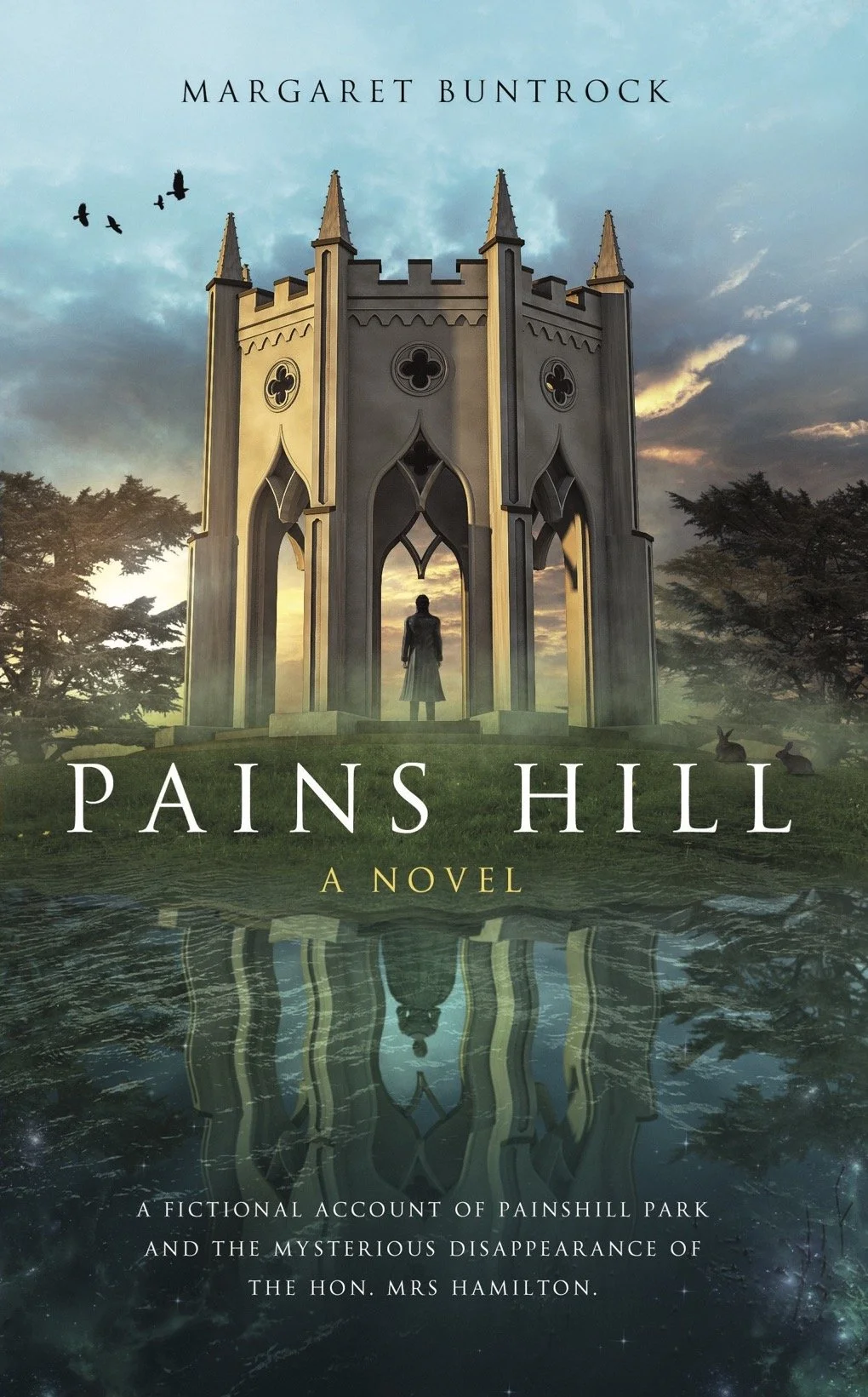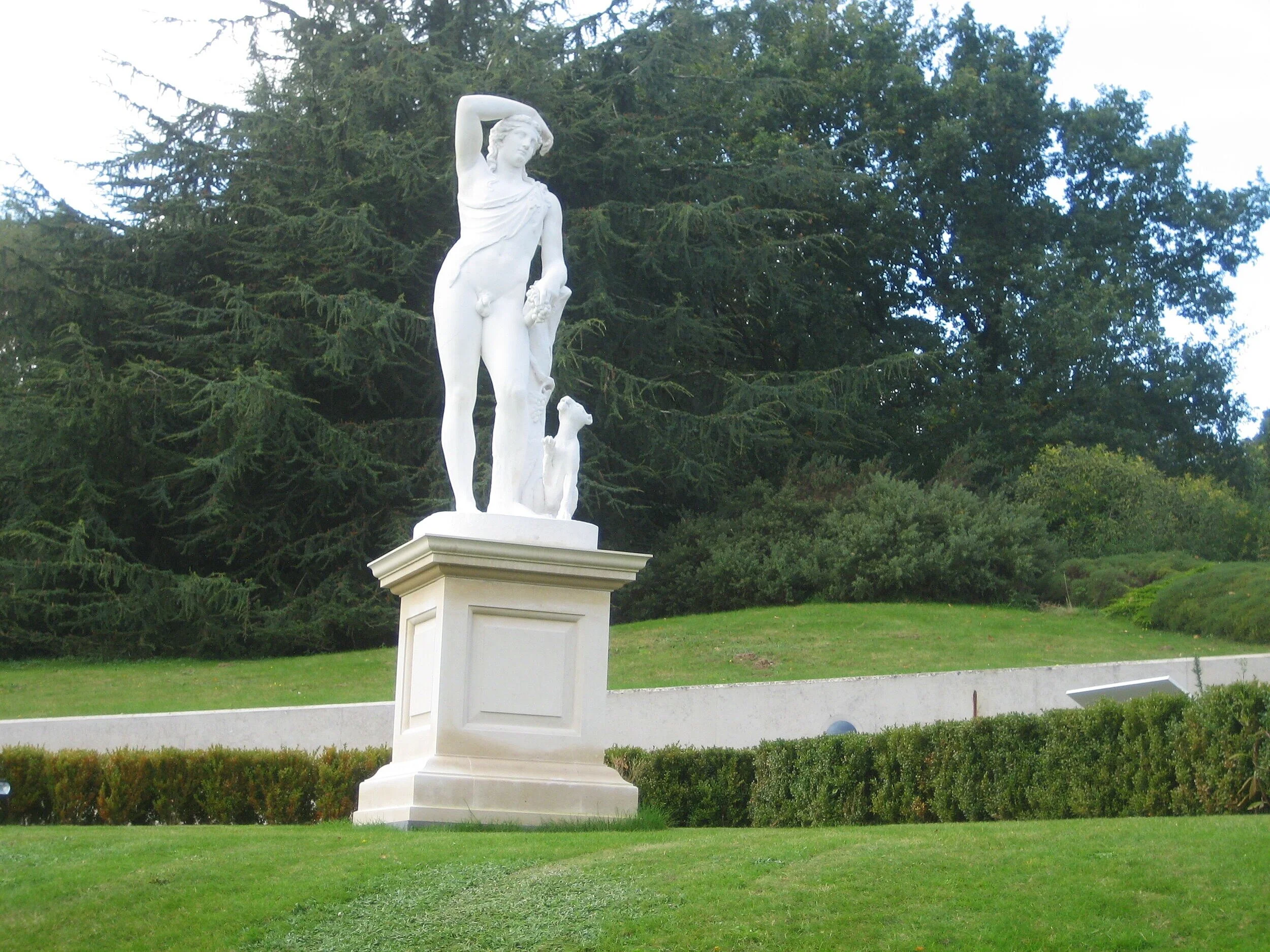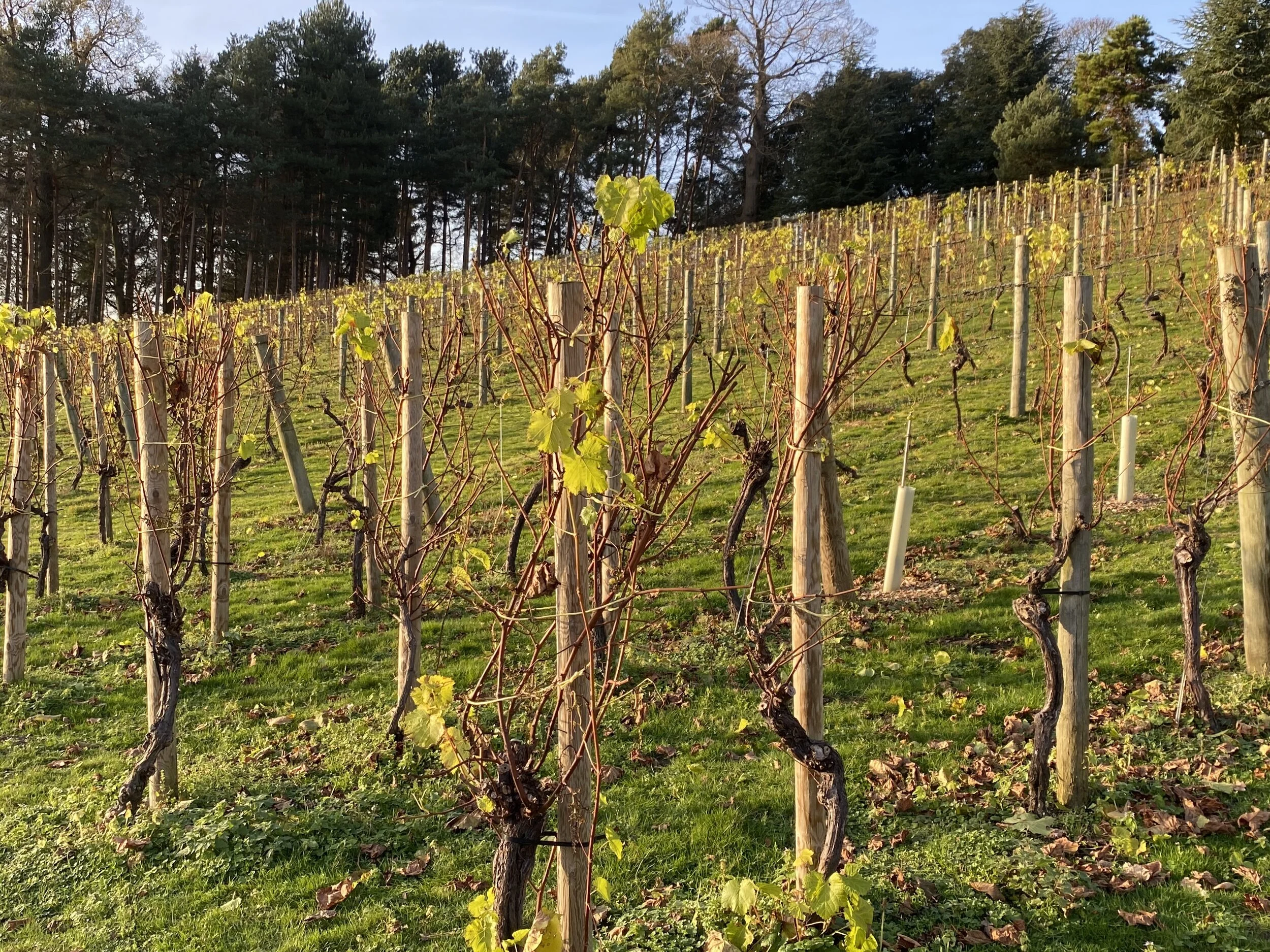Autumn 2025
Autumn arrived dramatically in Surrey this year, announcing itself with torrential rain, strong winds and a sharp drop in temperature. The changing seasons feature in the eighteenth-century narrative of Pains Hill as they would have played a major role in the creation and everyday life of the garden. By contrast, the novel’s 1990s narrative hardly touches on the seasons, a reflection of our modern detachment from the natural world. The one exception is the month of May which plays a pivotal role in both storylines throughout the book.
When writing about the changing seasons and their impact on Painshill, I was lucky in that I live just a few minutes from the Park and walk my cocker spaniel every day in the local Cobham woods. So the novel’s nature descriptions derive not only from my many visits to Painshill in all seasons but also from daily observations made on walks through woods that share the same kind of terrain as the Park.
Here is an autumnal extract from Pains Hill:
“Mounted, Charles and Henry rode at ease around the garden where it seemed everything had been thrown to the ground by the storm: leaves, twigs, sweet chestnuts, acorns, beech nuts, cones, pine needles. It was as if Painshill had a new forest floor and what had been aloft on trees in the sky was now underfoot, trodden and crushed as the two riders passed over the soft ground, the hooves of the horses creating little round pools on the muddiest paths. In places, beneath the trees, the tall, billowing clumps of bracken were like a sea of fire, red and yellow flames gleaming in the low, slanted sunlight. Even the lake had changed after the storm. It had become golden, overspread with autumn leaves lying on the surface of the water. ”
The paperback is available from bookshops and online with Amazon, Waterstones etc. Pains Hill is also available as a Kindle ebook making it an ideal travelling companion.
If you would like a signed copy of Pains Hill, with or without a personal dedication, please email me at margaretbuntrock@gmail.com Cost for the signed paperback, including postage, is just the usual £11.99 (UK only).
Excerpts from Pains Hill
“Is there a straight path back to your house, Mr. Hamilton?” asked Sir William. “We have wandered about your park in an exceedingly wavering manner.”
“Yes, there is a fairly straight, linear path we can take back to the house. But the garden is designed to be enjoyed through a series of convolutions, so that you will be suddenly surprised by the unexpected.”
“I prefer straight lines, simple and direct, non of these crooked zigzags which are most disagreeable. I have a singular aversion to zigzags.”
“It is a new fashion, uncle,” interrupted Henry.
Sir William snorted, then said, “Let’s get back to the house.”
— Pains Hill (Chapter 10)
“Suddenly, Charles felt something on his knee, his left knee. At first he hoped he had imagined it, but then he felt it again, only more strongly, a pressure on his silk breeches that could only be a hand, beneath the table, pressing down on his upper leg. He wished it could be his right leg and hoped for a moment that perhaps the comely Constance, sitting on his right, could be able to reach over far enough to place her hand on his left leg, but no, it was impossible, and the only person whose hand it could be was the older sister, Verity. He decided to ignore it, did not even look at her, and stared fixedly ahead.
As Sir William broke off from his paean to Marlborough and raised his wine glass, Henry Fox again attempted to advance his friend’s standing.
“Charles has planted a vineyard at his Pains Hill estate.”
“A vineyard, good gracious?” spluttered Sir William. “That sounds very foolhardy.”
Several of the other guests around the table tittered with laughter.
“The Romans had vineyards in England. I do not see why I should not be able to make a passable wine,” stated Charles refusing to feel chastened.
“I think you would be better to turn your land to husbandry.”
“I have a farm at Pains Hill, naturally, with cattle and sheep, cornfields and orchards.”
“And he is making a magnificent garden,” interjected Henry. ”He has flooded fields to create a lake and islands. And he has acquired statues in Italy. Including one of Bacchus. It is the tallest Greek statue in England.”
Charles felt the pressure on his left leg tighten, as fingers gripped his flesh beneath his breaches.
— Pains Hill (Chapter 8)
Jane, being a good historian, knew the power she wielded, the potential for manipulation, the creative process that takes place behind the most seemingly objective interpretation of facts and events, the selection and arrangement of evidence in the weaving of a narrative fit for an audience. For the duration of her Painshill contract, Charles Hamilton was hers, she possessed him and she liked the feelings of omnipotence her work gave her. And while she worked alone, she was not alone, others, though long dead, inhabited her realm and were her companions on her research journey, and she was the ring-master.
— Pains Hill (Chapter 5)
Slowly and silently he emerged from the trees, creeping towards the seated figure, approaching from behind, unseen, the hefty wooden weapon in his hands. The hunched figure was intent on watching the water, bowed over and beginning to feel stiff from sitting still for so long.
The man swung the wooden weapon high in the air and brought it down hard on the head of the seated figure with a crushing force. The seated figure toppled to the ground. The swans continued to glide across the water.
— Pains Hill (Chapter 27)





